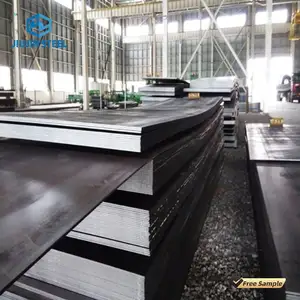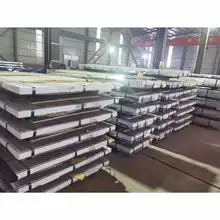Understanding Ballistic Steel
Ballistic steel is a specialized material designed to withstand the force of ballistic impacts. This robust metal is a critical component in various industries, serving as a shield against high-velocity projectiles. Its unique properties make it an ideal choice for applications requiring superior protection and durability.
Types and Applications of Ballistic Steel
The versatility of ballistic steel is evident in its wide range of applications. In the automotive sector, it reinforces vehicles, enhancing their safety in hostile environments. The aerospace industry incorporates this steel into aircraft design, utilizing its strength for critical components such as fuselages and wings. Construction projects employ ballistic steel for secure roofing solutions, while the equestrian industry has found uses in crafting protective gear for horses. Each application benefits from the steel's ability to absorb and dissipate energy from impacts, a testament to its adaptability across different fields.
Features and Material Specifications
Ballistic steel is characterized by its exceptional hardness and impact resistance. These features are quantifiable through standardized hardness scales, including Rockwell, Brinell, and Vickers. The choice of hardness level is crucial, as it determines the steel's ability to resist surface pressure and combat penetration from ballistic threats. Additionally, the material's corrosion resistance is a vital attribute, ensuring longevity and consistent performance in harsh environmental conditions.
Advantages of Using Ballistic Steel
The primary advantage of ballistic steel is its high level of protection. Its engineering allows it to serve as a reliable barrier against extreme forces. Furthermore, the material's durability and resistance to wear and tear make it a cost-effective solution over time. Despite its robustness, ballistic steel can be customized to meet specific industry requirements, offering flexibility in its use.
Selecting the Right Ballistic Steel
When choosing the appropriate ballistic steel for a project, it is essential to consider the specific needs of the application. Factors such as environmental exposure, potential impact forces, and required hardness levels should guide the selection process. It is crucial to match the material properties with the demands of the intended use to ensure optimal performance and safety.
Conclusion
Ballistic steel is a specialized material offering unparalleled protection and versatility across multiple industries. Its unique combination of hardness, impact resistance, and corrosion resistance makes it an invaluable resource for applications demanding the highest safety standards. While selecting the right type of ballistic steel, it is essential to consider the specific requirements of the application to ensure maximum performance and protection.































 浙公网安备 33010002000092号
浙公网安备 33010002000092号 浙B2-20120091-4
浙B2-20120091-4